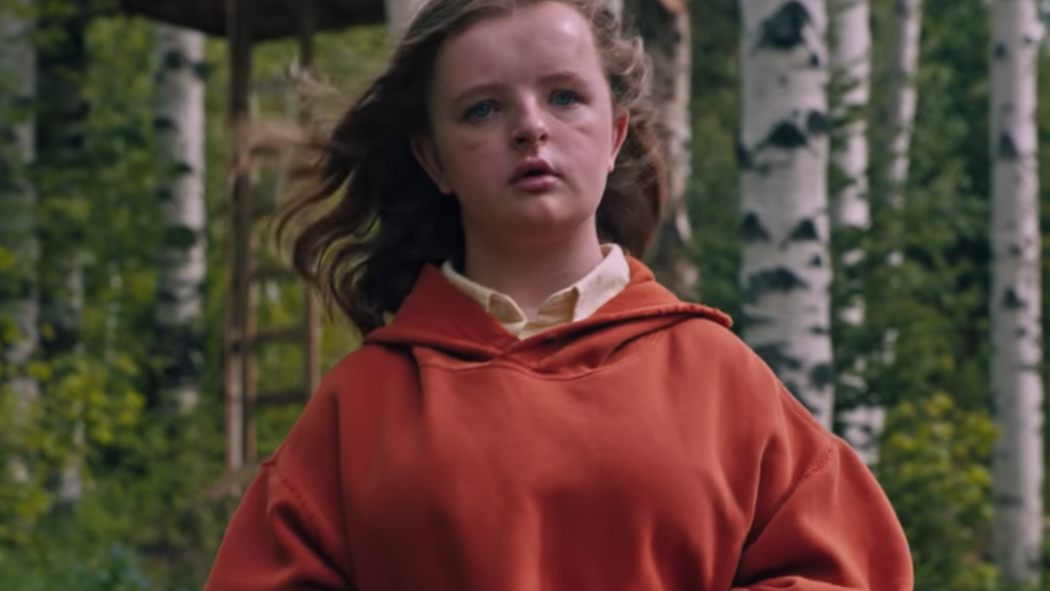
When light finally filled the theatre at Austin’s Alamo Drafthouse Cinema I could see that the older man sitting next to me was visibly shaken. In fact, I could see many people who looked like they were in desperate need of a good, long hug and maybe a bathtub full of bright yellow rubber ducks with a Disney marathon playing in the background. I shared that feeling, whatever it was; the shared sinking sense of dread mixed with awe – powerful and strong responses to a powerful and tough-as-nails film. That’s the astounding debut from Ari Aster, Hereditary: a narrative feature he has both written and directed with such an ironically beautiful sense of pain, presenting one of the darkest horror-drama films I have ever seen.
Earlier reviews seemed to all agree on this being an exceptionally scary movie, to the point where some people should just stay away at all costs. It’s a big claim, and as a self-proclaimed horror buff, hard to believe. Aster proves any doubters wrong simply by tapping into the darkest recesses of pain, contextualising hurt and translating that through fully-realised characters, each whom add to the searing, oppressive air of evil that swirls around the film’s central family and tightens its squeeze so incredibly hard in the third act that you’d be forgiven for bursting into tears, for no reason other than that Aster has captured and delivered this darkness with such a unique, gut-wrenching and visceral tone. It’s effecting to say the very least, and the movie will linger long after the credits roll.
A big part of why Aster’s vision is so successful is the cast he has managed to pull together, squeezing them into one dysfunctional family who at the beginning of the film are immediately flung into unspoken grief with the death of the matriarch’s mother. Each individual has a different response to this death, but all immediately highlight the terrible lack of communication and emotional repressiveness that plagues this family. It’s what enhances the inevitable pain when the film gets even darker, descending into a nightmarish hellscape that remains anchored in this family’s very real, very palpable agony which is so strong that it’s far more terrifying than any jump scare could possibly be.
The emotional connection established between the film and the audience is largely credited to Toni Collette and Alex Wolff, wearing their characters’ helplessness and grief in a way rarely seen in a genre film of this kind. Aster has made a family drama first, and a horror film second. It’s harsh and punishing, to both the audience and the characters, layering on the emotionally draining atmosphere – best represented by the unspoken tension between Collette and Wolff’s characters – until that thunderous, sinister third act takes all the fragility and hurt and intensifies it with a sense of pure unrelenting evil.
Hereditary will hit Australian cinemas later this year, stay tuned for our our interview with the director and cast.
———-
